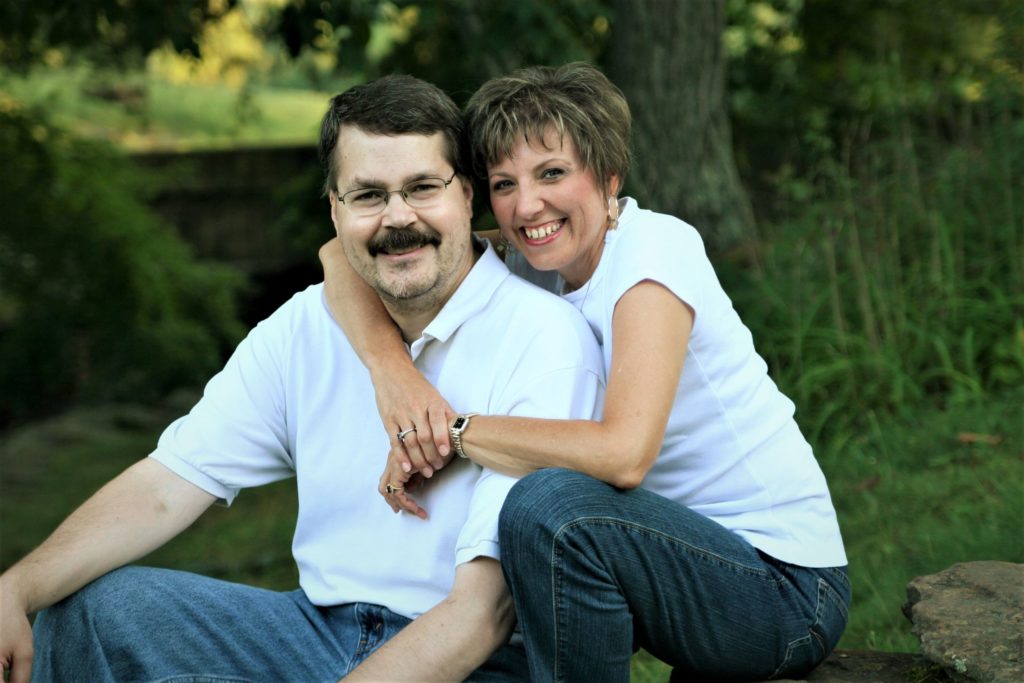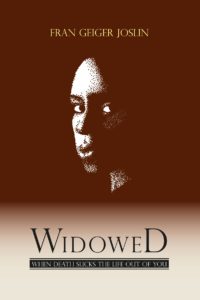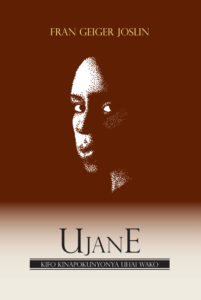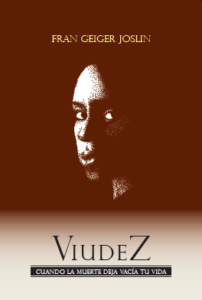by Fran Geiger Joslin
“I managed to live a full year without Brian, but suddenly I faced the task of living the rest of my life without him. At this same time others expected me to ‘move on.’
I could barely move at all, though, for the reality of Brian’s death sucked the life completely out of me.”[i]
The moment I wrote the final line in the paragraph above, the words struck me as the right subtitle for a book on widowhood. Although forced to keep living physically, the life I knew died with my husband, Brian. I couldn’t make sense of it. I struggled to stay out of bed even though sleep eluded me. Death came to me in the form of daily living. I felt as if life had been drained completely out of me.
My daughter describes the same feelings in a poem she wrote at the age of seventeen, reflecting on the memories of her loss at the age of ten:
We all died that day,
But only he went on.
The rest of us were left to haunt the earth,
Our moans and sobs sending people in every direction.
Food came to us in masses,
But the dead don’t eat.
We kept it just in case one of us resurrected.
Every last lasagna went into the trash.
We continued to possess our bodies,
And no one noticed we weren’t us.
The one person with whom I shared everything could no longer be reached, even on the phone. The feelings of complete and utter loneliness made me feel crazy. I went to the bookstore soon after Brian died and bought a bunch of books. I needed to know I wasn’t alone and that I could make it. I hoped someone would provide an answer for me in all those books.
Brian died at the end of July. By October when Halloween decorations began showing up in yards all around me, I felt highly offended. Fully aware of the condition of Brian’s body, I couldn’t stomach the displays of skeletons and graves strewn mockingly around my neighborhood. I wanted to hide away in my bedroom.
One day I read about a mother who lost two children. Nancy Guthrie, in When Your Family’s Lost a Loved One voiced her hurt by the same displays in her neighborhood.[ii] Finally, I didn’t feel so terribly alone! I began sobbing, almost screaming out that somebody understood.
Although I found some help and camaraderie in the books I read, I still felt frustrated. Most of the books written by Christians softened the blow of grief by over-spiritualizing it. “Just trust God,” they implied. To me, those words were a cop-out. I trusted in God, but my heart lay in shattered pieces, and I couldn’t figure out how to put it back together. I needed help but couldn’t find it.
A friend of mine lost her husband a few years after my Brian died. I laid in bed one night wrestling with the Lord over why another person ended up alone. I know death happens. I know we all experience death at some point. But now I experienced widowhood personally and grieved for everyone else who joined this widows’ club.
I may not qualify as an expert on much, but one thing I know: what widowhood feels like. As I lay in my bed wrestling with the Lord over my friend’s loss, my thoughts switched to what I would say to a new widow. As if the Lord struck me with lightning, I sat up in bed, flipped on the light, and began writing. Before settling to sleep, an outline for a book sat on my nightstand.
I decided to write the book I needed. I longed for someone to speak the truth about the cavernous pit of sorrow, as well as the hope of renewed life on the other side. I also desperately wanted to know how to get there.
People who grieve often find it hard to focus. They may find it hard to read an entire chapter in one sitting. I wrote Widowed: When Death Sucks the Life out of You in small sections instead of long chapters. Each chapter stands alone, sorted by topic. I wanted grievers to find the subject matter they need without the frustration of reading the entire book.
I interviewed many widows and widowers, and I tell some of those stories in the book (names changed, of course). I pray all who read it will find support, encouragement, and hope.
In general, people who haven’t personally experienced the loss of a loved one don’t understand those who grieve. As a result, they don’t know how to encourage their friend or family member. They often put pressure on the person to “get over it” and “move on.” They push us to remarry when the thought of remarriage nauseates us. They want us to be happy, but they don’t understand the despair we must trudge through in order to find joy again.
I found myself regularly teaching friends how to love me through my pain. As a result, I decided to add a section at the end of each chapter in the book for those who love the griever. We all know people who grieve, but we don’t all know how to love them through their pain. This book not only gives them insight into what their friend/loved one goes through, but also provides suggested tips on how to love them through many different scenarios.
Who was my target audience? Of course, the biggest target is widows and widowers. I have since learned, though, that divorce, the loss of anyone you love, and traumatic events can also suck the life out of us. Friends who’ve experienced those kinds of losses tell me that Widowed: When Death Sucks the Life out of You ministered to them as well.
This book is ultimately for everyone:
- The widowed
- Those who love the widowed
- Pastors
- Counselors
- Those who suffer hardships
- Those who want more understanding
[i] Fran Geiger Joslin, Widowed, When Death Sucks the Life out of You (Plano: Authenticity Book House, 2018), page 22.
[ii] David and Nancy Guthrie, When Your Family’s Lost a Loved One (Carol Stream: Tyndale House, 2008), p. 160. wo
To download a copy of Widowed for free or to purchase a copy, click here. This is a 4” x 6” abridged version (16,000 words) of the original book (60,000 words). Download in Swahili or Spanish.
To order the larger (original) version, click here. This book provides lots more information, quotes, and suggested help, but does not include notes to those who love the griever.




